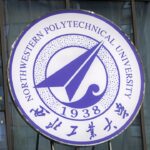Citing improved convenience and increasing opportunities, residents of the island of Taiwan reacted positively toward the country’s most-recent circular on making East China’s Fujian Province a demonstration zone for the integrated development across the Taiwan Straits.
The move is aimed at deepening cross-Straits integrated development in all fields and advancing the peaceful reunification of the motherland, according to the circular jointly issued by the Communist Party of China Central Committee and the State Council on Tuesday.
The circular said policies and systems will be optimized to promote the well-being of Taiwan compatriots and ensure they enjoy equal treatment with their mainland counterparts, according to the Xinhua News Agency.
The circular has attracted attention from some Taiwan residents, who hailed the convenience and attractiveness it could bring.
A Taiwan resident who works in the machinery industry and often takes business trips to the mainland told the Global Times on Wednesday that he is interested in the items related to deepening exchanges and industrial cooperation.
“With the major policy announced, I hope to seek some new business opportunities,” the Taiwan resident surnamed Chu said, noting that he is most interested in the provisions strengthening transportation and logistics infrastructure and deepening industrial cooperation.
Chu believed that the guidelines can provide convenience, especially for residents from Kinmen, who will be able to strengthen communication with Fujian. “Education is another key focus. For people with families, the mainland seems increasingly convenient and attractive,” he noted.
A Fujian resident surnamed Lin also told the Global Times on Wednesday that she would welcome more compatriots in Taiwan to come to Fujian to work and live.
“I hope this demonstration zone in Fujian will allow more young Taiwan residents to learn about real life in the mainland and strengthen our emotional ties,” she said.
From the central government attaching great importance to the exploration of cross-Straits integration and development, we can see that the central government still regards cross-Straits peaceful development and integration as the core essence of the work concerning Taiwan, said Wang Jianmin, a senior cross-Straits expert at Minnan Normal University in Fujian Province.
In practice, integration in terms of taxation and justice has received public attention.
Wang said that at the level of corporate taxation, Taiwan-funded enterprises pay taxes according to the mainland’s relevant laws and regulations, and can enjoy various preferential treatments related to Taiwanese investment. For the personal income of Taiwan compatriots in the mainland, the rights and responsibilities or obligations to pay taxes are likely the same as locals, but they may also enjoy some preferential treatment.
On the legal front, the main channels for cross-Straits judicial exchanges at present are mainly arbitration and exchanges and cooperation, which Fujian has been promoting for years. With the issuance of this circular, it is possible that relevant judicial cooperation can be extended to other regions.
Wang said he thinks the highlight of the document is the social and people-to-people exchanges between Fujian and Taiwan, which is also the biggest advantage of Fujian in affairs relating to the island. This is the first time that cultural integration has been raised in an official document on Taiwan. This is a long-term strategic guidance, not a short-term goal, Wang said.
On Thursday, China’s State Council Information Office will hold a news conference to further interpret the major policy, said Chen Binhua, a spokesperson for the State Council Taiwan Affairs Office, during a news conference on Wednesday. A number of senior officials will brief media, including Pan Xianzhang, a vice director of the State Council Taiwan Affairs Office; Cong Liang, a deputy director of the National Development and Reform Commission; and Luo Dongchuan, Fujian’s deputy Party chief, according to Xinhua.
Chen also revealed during the news conference that the number of Taiwan residents visiting the mainland increased by seven times year on year in the first half of 2023. The increase is attributed to the timely optimization and adjustment of COVID-19 response measures for cross-Straits personnel, efforts to promote the resumption of transport links between Fujian and Kinmen and Matsu and the restoration of direct cross-Strait passenger flights, and the resumption of group tours for Taiwan residents to the mainland.
(Global Times)




